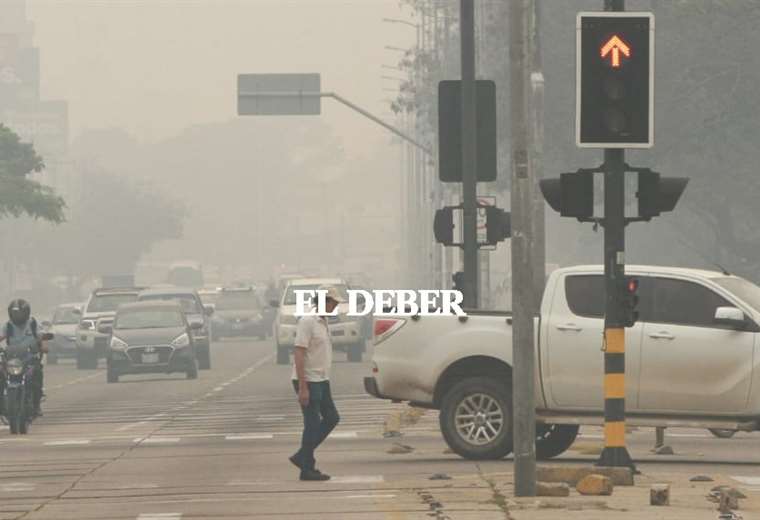October 21, 2024, 11:20 AM
October 21, 2024, 11:20 AM
Climate change increasingly influences the behavior of fires around the world and intensifies their smoke, this worsens air pollution and affects public health in cities: every year more than 98,748 people die from it. smoke from fires.
This is according to two studies published this Monday in Nature Climate Change and led by the Potsdam Institute for Climate Impact Research PIK.
The first study confirms that between 2003 and 2019, the area burned worldwide due to climate change has increased 15.8%, especially in Australia, South America, western North America and Siberia.
This increase in forest fires has neutralized the decrease in the burned area due to changes in land use and the increase in population density in recent years, the study reveals.
Building on this, the second study examines how climate change is linked to a global increase in deaths from air pollution related to fires and reveals that climate change increased these deaths from 669 annually in the 1960s to more than 12,500 in the 2010s.
“Our study shows that when fires occur, the influence of climate change with drier and warmer weather conditions is increasingly significant,” explains Chantelle Burton, a researcher at the Met Office Hadley Center and co-lead author of the first study.
Based on a comprehensive set of global fire and vegetation models, they show that climate change has increased the area burned worldwide by 15.8% between 2003 and 2019 compared to a situation without climate change, and especially virulence in Australia, South America, western North America and Siberia, the most fire-prone regions.
At the same time, the area burned worldwide is decreasing as natural lands are converted to human uses, such as agriculture, which has reduced the areas available for fire by approximately 19% over the same period.
However, although these trends counteract each other, researchers believe that the effect of climate change on fires increases over time, as the climate continues to warm.
A risk to the health of the population
The second study assesses the global impact of climate change on air pollution caused by fires and associated health risks over the past 60 years.
Specifically, it reveals that deaths due to air pollution caused by fires have gone from 46,401 annually in the 1960s to 98,748 in 2010, and according to their calculations, 669 annual deaths in the 1960s and more than 12,500 in 2010 can be attributed to climate change.
“This shows that climate change increasingly poses a threat to public health, due to increased fire smoke affecting even densely populated areas,” says Chae Yeon Park, from the National Institute of Advanced Industrial Science and Technology in Japan and main author.
Smoke from fires contains extremely small particles that penetrate the respiratory system and pose a significant health risk, causing lung and respiratory diseases.
Regions such as South America, Australia and Europe experienced the most significant increases in fire mortality attributed to climate change, coinciding with warmer, drier conditions caused by global warming.
Although decreasing humidity and increasing temperatures increase the risk of fires, researchers also noted that in some areas, such as South Asia, increasing humidity led to fewer fire deaths attributable to climate change.
“It is crucial to understand that the impact of smoke from fires goes beyond those who live directly in the affected areas” because “our study confirms that exposure to smoke can have serious consequences for public health,” warns Christopher Reyer, co-author of the study. EFE














